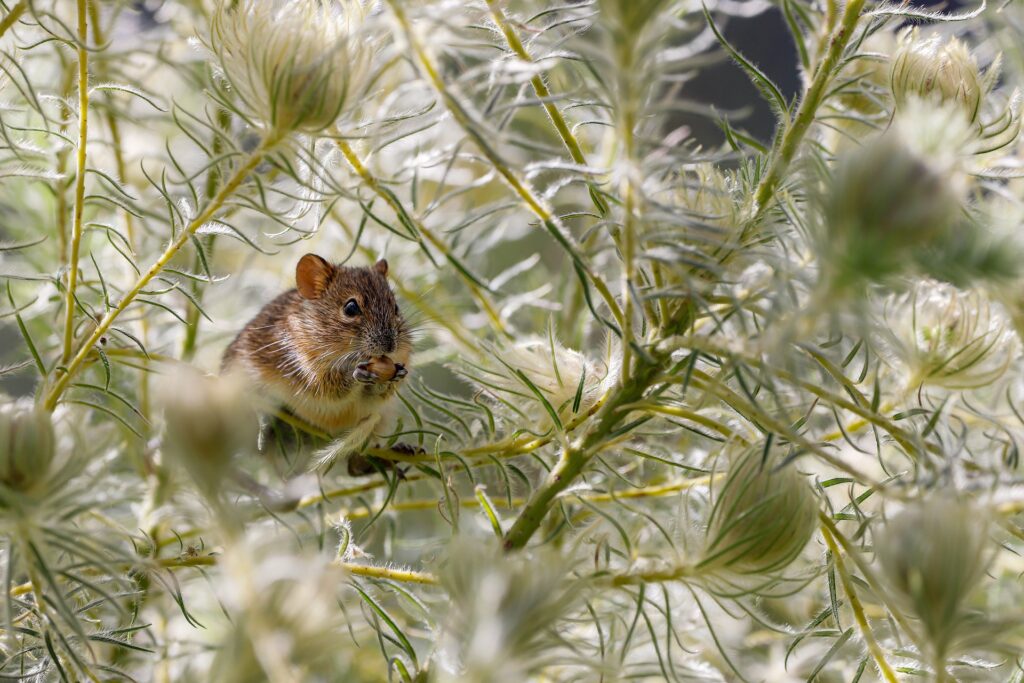Mosquitos are commonly found near homes around the country. They gather in large swarms near water and can ruin any outdoor activity. These bloodsucking insects can leave an irritating bite. Mosquitos can also spread rapidly even with a small body of water on your property. Mosquitoes can lay up to 200 eggs at a time, which can hatch in just a couple of days. It can take less than two weeks for a mosquito to complete its life cycle and lay more eggs. That’s a lot of mosquitoes!
To learn more about where mosquitoes are most commonly found and when they are at their most active, it’s important to understand their behavior. Mosquitos have three basic necessities:
- Somewhere to lay eggs
- Something to eat
- Somewhere to live or hide
Knowing these three basics can begin to help you control mosquitoes around your home and property. The question, “Why are they here?” is answered by understanding their needs. Once you understand these, you will be able to address the locations where they’re populating, and eliminate or reduce what brought them there ( i.e., standing water) and treat areas where they might be resting. But don’t face mosquitos on your own, choose a pest plan with Aptive’s experts to keep your home protected from mosquitoes.
Somewhere to Lay Eggs
Mosquitoes lay their eggs in standing water. If there’s standing water near your home – flower pots, buckets, bird baths, rain gutters, or even discarded tires – it could become a breeding ground for mosquitoes. Have you seen the tiny little wigglers in stagnant water? Those are likely mosquito larvae.
Something to Eat
Female mosquitos are blood suckers – and they need a blood meal before they lay. Male mosquitoes feed only on plant juices such as nectar, to get the sugar they need for energy and survival.
Somewhere to Live or Hide
Mosquitoes prefer quiet, undisturbed areas that offer protection. Vegetation around your home provides ideal shelter for mosquitoes. They especially love the hidden under-side of leaves. Overgrown grass, bushes, and trees are great hiding spots for these pests during the hot parts of the day.
Where are mosquitos found?
At Aptive, we monitor pest activity around the U.S. to help us understand where and when pests are at their busiest. By better understanding pesky pests like mosquitos, we’re able to offer effective treatments aimed to reduce pest activity and limit future infestation.
To effectively manage mosquito infestations, it’s crucial to understand their habitats and breeding grounds commonly found throughout the United States. Aptive has local pest experts across the country. Get mosquito treatment when and where you need it most.
Aptive tracks mosquito activity across the US, this map shows where they are most densely located and where we treat them most often.
Southern States
Southern states, particularly those with warm and humid climates, are notorious for having high mosquito populations. States like Florida, Texas, North Carolina, and Georgia experience year-round mosquito activity due to their favorable weather conditions.
Wetlands and Marshes
Mosquitoes thrive in wetland areas, marshes, and swamps where stagnant water is abundant. These environments provide the ideal conditions for mosquitoes to breed and lay their eggs. Common species found in these habitats include the saltmarsh mosquito, floodwater mosquito, and the Asian tiger mosquito.
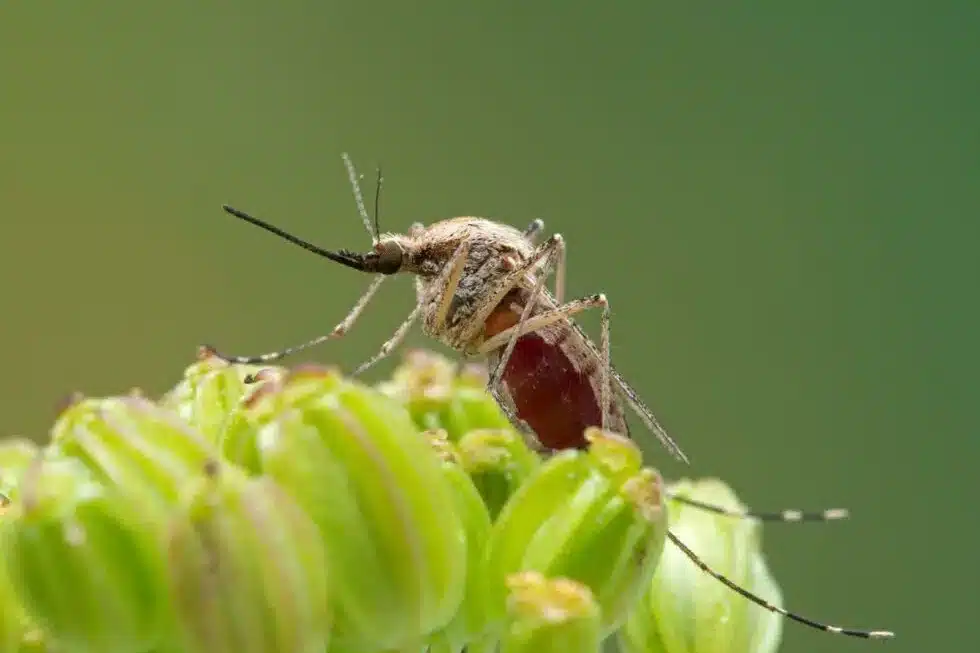
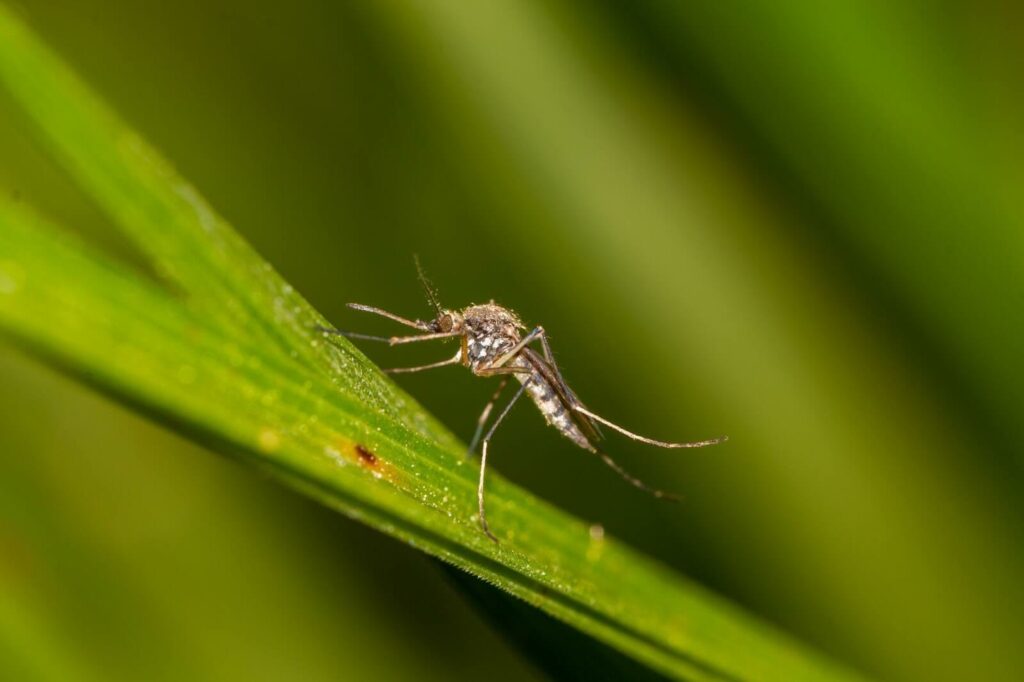
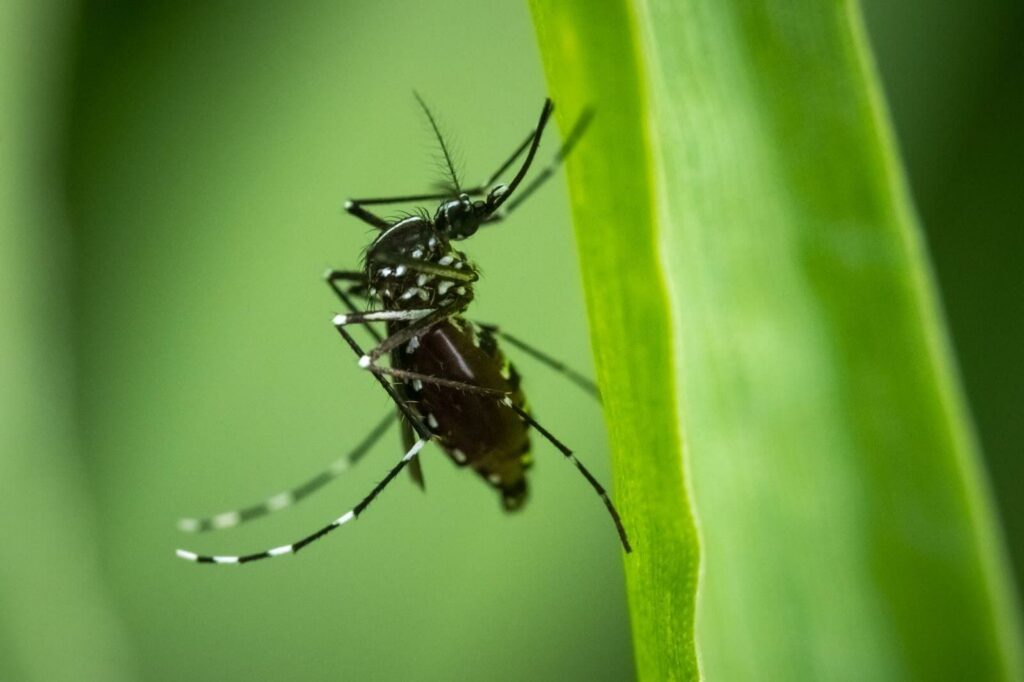
Coastal Areas
Coastal regions are another hotbed for mosquito activity due to the combination of wetland habitats and the proximity to human populations. Mosquitoes such as the saltmarsh mosquito and the eastern tree hole mosquito are frequently found in coastal areas, particularly during warmer months.
Urban and Suburban Areas
Mosquitoes are highly adaptable and can thrive even in urban and suburban environments. They take advantage of standing water sources, such as birdbaths, flower pots, clogged gutters, and discarded containers, to lay their eggs. Common urban mosquito species include the Asian tiger mosquito, southern house mosquito, and northern house mosquito. These species are most commonly in the southeastern states, but can be found all the way from Texas, California, and even Texas.
Forests and Woodlands
Mosquitoes are not limited to wet environments; they can also be found in forested and wooded areas. These habitats offer an abundance of natural water sources, such as ponds, puddles, and tree holes, which serve as breeding grounds for various mosquito species. Mosquitoes like the eastern tree hole mosquito and the woodland mosquito are prevalent in these regions.
Rural Areas and Farmlands
Rural areas and farmlands provide ample opportunities for mosquitoes to breed. Ponds, ditches, and irrigation systems commonly found in agricultural settings offer ideal conditions for mosquito larvae to develop. Mosquito species such as the floodwater mosquito and the inland floodwater mosquito are frequently encountered in rural areas.
Understanding where mosquitoes are commonly found is crucial for effective mosquito control strategies. Whether you reside in wetland areas, coastal regions, urban environments, forests, or rural areas, it’s essential to eliminate standing water sources and employ appropriate mosquito control measures. Remember to use EPA-approved repellents, wear protective clothing, and seek professional assistance from a reputable pest control company like Aptive to keep mosquitoes at bay.
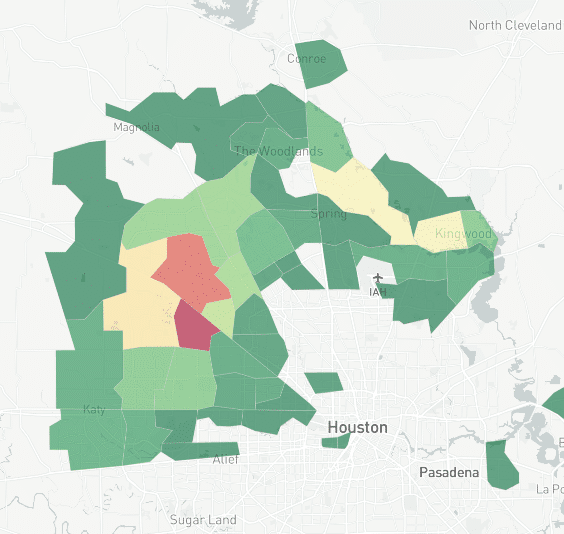
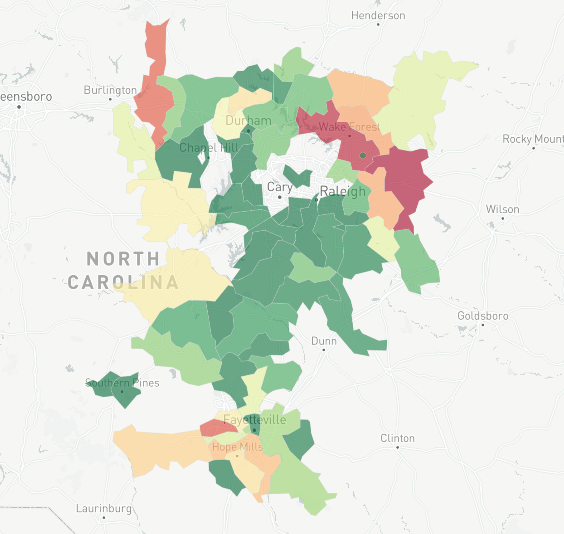
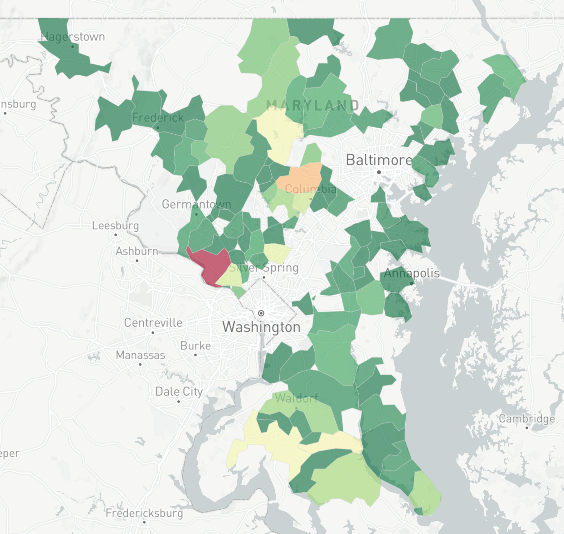
The top three locations for mosquito activity and Aptive mosquito treatment are: Houston, Raleigh, and Baltimore.
When are Mosquitoes at their Busiest?
It’s also vital to recognize and prepare for peak activity periods of mosquitoes and have insights on how to minimize their impact on your daily life. Aptive utilizes professional mosquito control techniques to limit mosquito infestations in your home or yard. Call our team to get help.
Seasonal Variations
Mosquito activity varies throughout the year, primarily influenced by seasonal changes in temperature and humidity. In general, mosquitoes are most active during the warm months when temperatures consistently exceed 50°F. However, their activity levels can differ based on geographical location and climate.
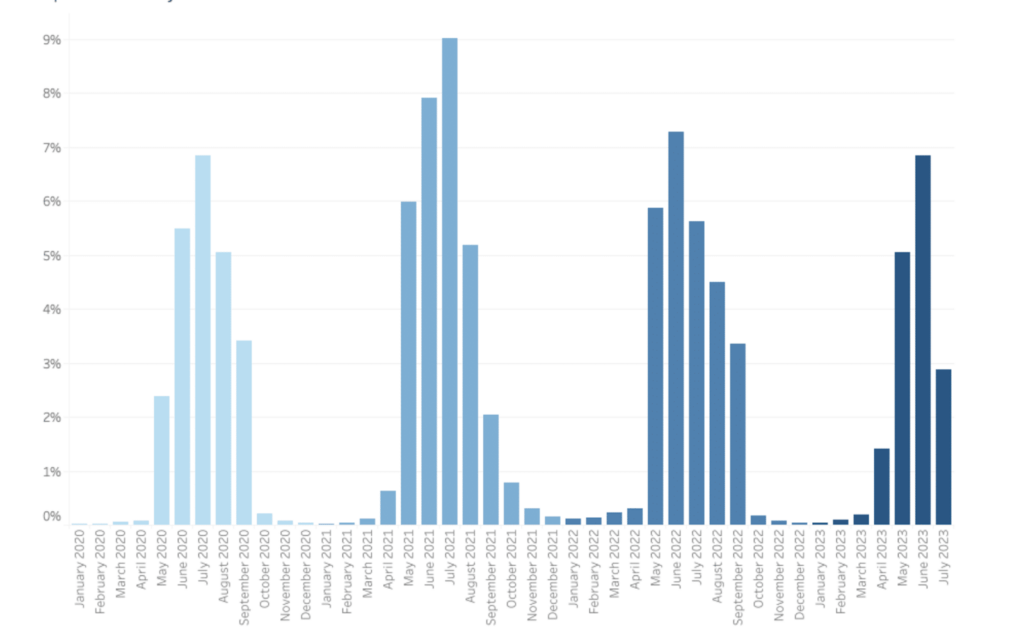
Time of Day
Mosquitoes have specific times of the day when they are most active and likely to bite. While some mosquito species exhibit different patterns, the following periods are typically when mosquitoes are at their peak activity.
Dawn and Dusk: Mosquitoes are particularly active during dawn and dusk. These transitional periods between night and day provide ideal conditions for their feeding activities. It’s advisable to avoid spending extended periods outdoors during these times or take necessary precautions to protect yourself.
Evening and Nighttime: Many mosquito species, such as the common house mosquito and the Asian tiger mosquito, are most active during the evening and nighttime. They are attracted to sources of artificial light and are more aggressive in seeking blood meals during these hours.
Weather Conditions
Weather plays a significant role in mosquito activity. Mosquitoes thrive in warm and humid environments, so their activity tends to increase during periods of high humidity and stagnant air. Additionally, mosquitoes are less active during windy conditions as it hampers their flight capabilities.
Species-Specific Behavior
Different mosquito species have varying activity patterns and preferences. Some species, like the Asian tiger mosquito, are active during the day and can be particularly bothersome during outdoor activities. Other species, such as the common house mosquito, are more active during the evening and night. Understanding the prevalent mosquito species in your area can help you better prepare and implement appropriate control measures.
To minimize the impact of mosquitoes, it’s crucial to be aware of their peak activity periods. Dawn, dusk, evening, and nighttime are generally when mosquitoes are most active and likely to bite. During these periods, it’s advisable to limit outdoor activities, especially in areas with a high mosquito population. Additionally, employing proactive measures such as using mosquito repellents, wearing protective clothing, and eliminating standing water sources can significantly reduce mosquito encounters.
Eliminate their “Somewhere to Lay”
To disrupt their life cycle on your property, eliminate all standing water. To give you an idea, one mosquito can lay up to 200 eggs at a time. A single female can lay around 500 eggs in her lifetime. Scientists estimate 700,000 to 1.3 million eggs per acre of floodwater habitat in Florida.
Love your bird bath? No worries! There are water treatment products called IGR’s – Insect Growth Regulators – which disrupt the growth and reproduction of insects. So keep that standing water treated and you’ll limit it as a source for mosquitoes to lay. Plus you’ll hinder all those eggs that are laid there from developing.
Address their “Somewhere to Live or Hide”
Since you can’t exactly eliminate their “something to eat” – which is you and your kids, the focus is on their “somewhere to hide.” Mosquitoes prefer to lay low and hide during the day. Their favorite hiding place is any overgrowth. So keep your property trimmed and clean to help reduce hiding places. If you want to treat mosquitoes around your home, this will be your target site – particularly the underside of leaves and inside the bushes. If you are still seeing mosquito activity in your yard, give Aptive a call and choose a pest control plan including mosquito treatments.
Do Mosquito Traps Work?
Yes and no. Do they attract and treat mosquitoes? Sure. Will they eliminate the problem? Not always. When you have thousands of mosquitoes flying around, removing dozens may not create much of a dent in the population. Sometimes they can backfire. Traps work by luring mosquitoes into a container or device that kills them. So if you have a trap on the porch that you sit on, you’re actually attracting them to where you are! If you’re going to use mosquito traps, put that trap far away from where you want to attract them.
Do Mosquito Repellers Work?
Mosquito repellent devices have been known to reduce mosquitoes in your immediate sitting area. As with all products, some work better than others. Among the most effective repellents are those that contain DEET or picaridin.
Will I See Mosquitoes After My Treatment?
The only surefire way of keeping flying insects at bay is screened enclosures. This is probably why we see so many lanai and screened porches in Florida and Minnesota. When you are dealing with a flying insect, you’re not just dealing with those around your home, but those around the neighborhoods. So while treatment can be effective in reducing the mosquito population on your property, and while you can limit the things which attract mosquitoes, expecting full elimination will likely result in disappointment. Aptive’s pest control plans with mosquito coverage offer year-round treatments, primarily in the warmer months when mosquitoes are most active, keeping mosquitoes at bay while making your home and yard more enjoyable.
Conclusion
By staying informed and taking proactive steps, you can enjoy the outdoors while keeping mosquitoes at bay. Our team of experts have developed tailored pest plans to treat your mosquito problem throughout the season. We offer pest expertise and neighborly care that you can rely on, year-round. Call our team to get started.
